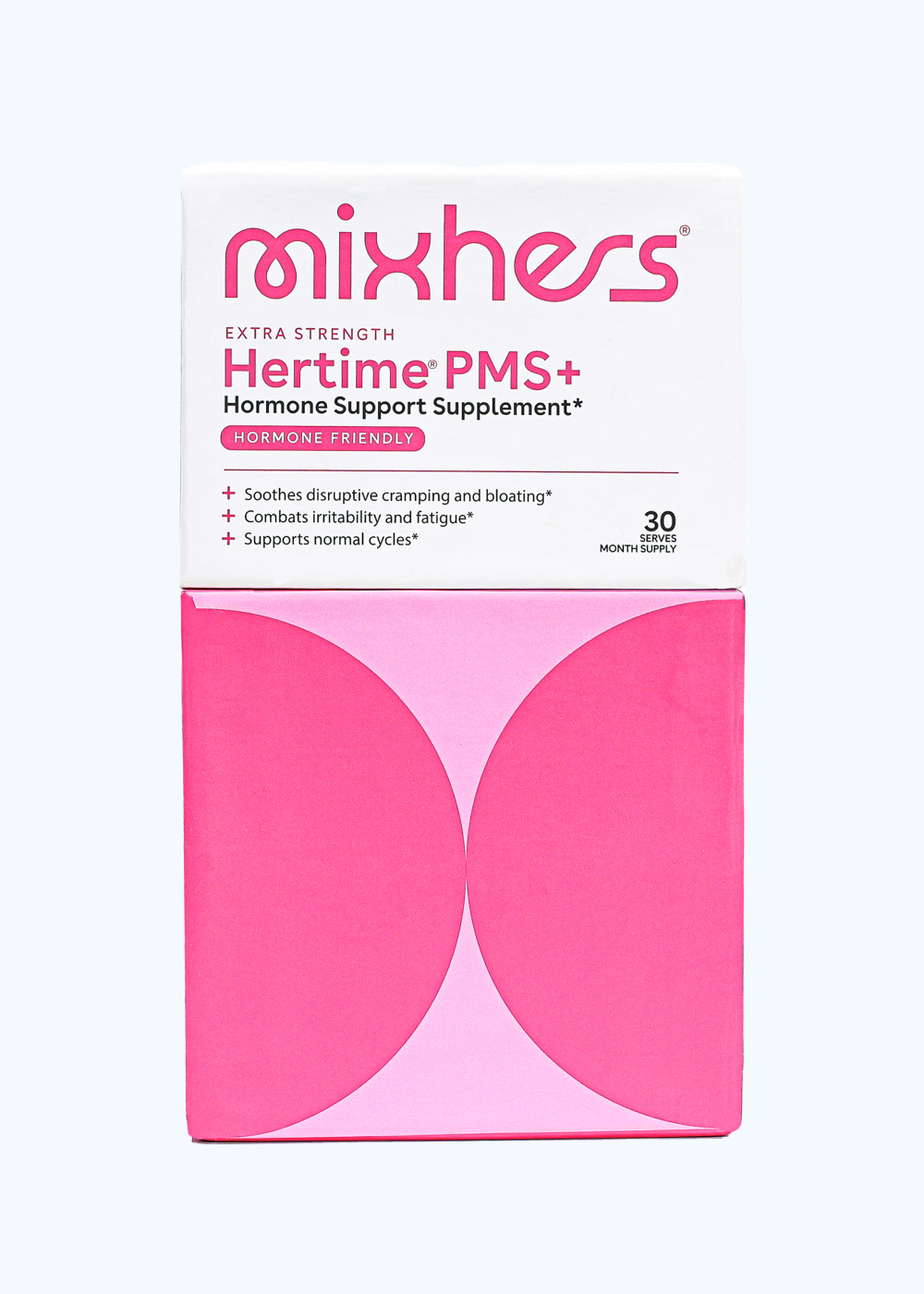Did you know Mother Nature is sort of like a master physician? Though modern medicine has its place and has saved countless lives, there are natural alternatives for most common ailments and health woes—including sleep issues. These natural solutions are typically associated with fewer unwanted side effects than prescription or over-the-counter meds. If you are tired of dealing with insomnia symptoms and want quality sleep, you may want to try a natural sleep aid.
Benefits of Natural Sleep Aids
Doctors commonly prescribe sleeping pills to their patients, and there are a variety of OTC sleep aids you can find at your local drug store. So why should you opt for natural sleep aids instead?
Though prescribed sleeping pills are effective, they don’t come without risks and side effects. If you decide to take these products, you may be trading your health for improved sleep quality. Here are a few of the most common risks and side effects associated with prescription sleep medication.
- Headaches
- Dry mouth
- Prolonged drowsiness that extends into the next day
- Constipation
- Unsteadiness
- Muscle aches
- Dizziness
- Difficulty concentrating
- Rebound insomnia
- Drug intolerance (taking more of the medication to get the same benefits)
- Drug dependence (not being able to sleep without the medication)
- Withdrawal symptoms if you abruptly stop taking the medication
More serious risks and side effects associated with prescription sleep aids include drug interactions, severe allergic reactions, hallucinations, dangerous sleep-related behaviors (such as sleep-driving), and suicidal thoughts or actions.
One of the most-appreciated benefits of natural sleep aids is that they don’t come with these side effects. Those of us who need them can use them to achieve restful sleep without worrying about serious health complications (in most cases). When taken as directed, a natural sleep aid can help those of us who struggle to fall asleep at night. These products can help us achieve healthy sleep so we awaken feeling well-rested and rejuvenated.
How Do Natural Sleep Aids Work?
Natural sleep aids calm the mind and body and promote relaxation so we can develop a healthy sleep-wake cycle. There are a variety of natural ingredients that can help promote better sleep. They include melatonin, valerian root, chamomile, magnesium, ashwagandha, magnolia bark, and passionflower. Here’s how each of these ingredients works as a natural sleep aid.
Melatonin
Melatonin is a hormone that’s produced within the pineal gland. The human body naturally produces melatonin, which controls circadian rhythms and plays a key role in sleep quality. Unfortunately, melatonin production declines with age, which is why many of us find it more difficult to achieve good sleep as we grow older. Consistent sleep issues can lead to sleep-related anxiety and frustration (not to mention daytime drowsiness, increased hunger, and health problems).
For those of us who dread bedtime because we know we’ll experience sleep disturbances, a melatonin supplement may be helpful. The recommended dose of melatonin is between 1 mg and 5 mg before bedtime. However, too little or too much of the hormone may not yield the desired sleep quality results. Mixhers Sleep contains 3 mg of melatonin, which helps ensure a good night’s sleep.
In addition to its use as a sleeping aid, melatonin may also boost immunity, help relieve jet lag symptoms, and fight inflammation in the body. Prolonged use of melatonin supplements could potentially contribute to stomach cramps, depression, irritability, wakefulness in the night, and grogginess.
Valerian Root
Valerian root has been shown to help treat insomnia in postmenopausal women. The herbal medicine is commonly combined with lemon balm. Some people like to drink valerian as an herbal tea, while others prefer to take it in capsule form. No matter how you choose to take this product, be sure to follow the recommended dosage information found on the label.
Valerian root does have the potential to become habit-forming over time. For this reason, it’s best to take it for two-to-six weeks, then slowly taper back your dosage. If you abruptly stop taking valerian root, you may experience anxiety or other withdrawal symptoms.
In addition to assisting with optimal sleep hygiene, valerian root may also help ease headaches, depression, stomach or menstrual cramps, and joint pain. But some people may experience irritability, headaches, impaired thinking, irritability, and upset stomach when taking this herbal sleep supplement. If you want to try it, take a small amount and pay attention to how it makes you feel.
Chamomile
Chamomile is a gentle herb that many people enjoy. While its use as a stomach soother is well known, many people don’t know that it also promotes sleep and relaxation. If you’re looking for an herbal supplement that can help improve your sleep quality, chamomile won’t let you down.
Many people like the flavor of chamomile tea, but you can also inhale chamomile essential oil vapors from a diffuser or apply diluted chamomile oil to your skin. If you’re allergic to any plants in the daisy family, you’re probably allergic to chamomile and shouldn’t take it.
You’ll get 100 mg of chamomile flower extract from Mixhers Sleep. This is the optimum amount to promote good sleep habits and help stave off the effects of poor sleep.
Magnesium
Magnesium is a mineral that’s naturally found in the body and assists with many different bodily processes. It also helps calm the body and mind, which makes it a great natural sleep remedy to take at bedtime.
Various studies show the positive effects of taking a magnesium supplement at night. Insufficient levels of magnesium in the body have been linked to poor sleep quality. When taken in combination with melatonin, magnesium shows great promise for promoting healthy sleep cycles in adults.
Though side effects from magnesium supplementation are rare, it is possible to experience dizziness, trouble breathing, or diarrhea. It’s also possible to overdose on magnesium, though this very rarely happens to people who have normal kidney function.
Ashwagandha
Ashwagandha is a natural ingredient derived from the root of the Ashwagandha shrub. It is one of the lesser-known natural sleep aid ingredients, but it is a powerful adaptogen and helps the body cope with stress and anxiety. Since anxiety is a common cause of sleep problems, it’s important to reduce it whenever possible.
In addition to minimizing anxiety, ashwagandha may also help you achieve deep sleep and REM sleep, which are the most restorative types of sleep you can experience. Though rare, consuming too much ashwagandha can potentially cause gastrointestinal upset. Mixhers Sleep delivers 275 mg of ashwagandha root powder, which is enough to help combat insomnia and other sleep issues, but not enough to worry about overdosing.
Magnolia Bark
Magnolia bark is a natural remedy for insomnia and other sleep problems. It is derived from the magnolia tree and helps to facilitate sleep by reducing stress and promoting feelings of relaxation. Magnolia bark also contains polyphenols, which have been shown to improve sleep.
There is also a link between magnolia bark and improved GABA receptor activity. GABA receptor activity is closely associated with sleep patterns and sleep quality.
Passionflower
Passionflower is a beautiful plant to look at, but its worth lies so much deeper than its looks. It helps alleviate sleep disorders such as chronic insomnia or sleep-disrupting anxiety. It can also help to relieve menopause symptoms, muscle spasms, and inflammation.
Though it is an effective sleep remedy, it’s important not to take passionflower for longer than two months at a time. It’s also important not to take it if you’re pregnant or breastfeeding. Passionflower can interact with some types of medications, including antidepressants and blood thinners. If you notice any unusual symptoms after taking a passionflower supplement, talk to your doctor.
Who Needs a Sleep Aid?
Are you wondering how to tell if you need a sleep aid? Here are a few common indications that you may not be getting sufficient sleep at night.
- You constantly feel cranky or lose your temper easily
- You suffer from insomnia and can’t fall asleep
- Your friends ask you if you’re hungover even when you’re not
- You’re sick all the time
- You’re always sleepy and ready for a nap
- You need a lot of coffee or other stimulants to keep you awake during the day
- You have trouble concentrating and feel like you’re always in a “fog”
- You don’t have any energy
- You feel anxious all the time
These are all common indications of chronic lack of sleep. Though the symptoms themselves may seem relatively harmless, sleep problems are very serious. Chronic sleep deprivation has been tied to a variety of health problems, including diabetes, cardiovascular disease, hormonal abnormalities, mental health disorders (such as depression and anxiety), and immunodeficiency.
To avoid these issues, it’s essential to take the quality of your sleep seriously. Insomnia and other sleep issues are no joke and can seriously disrupt your quality of life. You deserve better than that, girl. Your health and happiness are worth all the effort you put into finding and treating the underlying cause of your sleep issues.
Side Effects and Risks Associated with Sleep Aids
We’ve already briefly discussed some of the potential side effects and risks associated with sleep aids, but let’s review them here. We want to help you make the best decision for treating your insomnia or other sleep problems.
Though natural sleep aids come from Mother Nature, that doesn’t mean they don’t have any side effects. They are therapeutic ingredients, after all. But the difference between natural remedies and OTC remedies is that side effects from natural sleep aid products tend to be rarer than side effects from prescribed sleeping pills. Generally, you can avoid any side effects from natural sleep remedies by taking them as directed and never exceeding the recommended dosage.
The most common side effects of natural sleep remedies include gastrointestinal upset, nausea, and daytime sleepiness. Reduced alertness, headaches, and diarrhea are also possible.
If you have any concerns about whether the ingredients in your natural sleep aid product are safe to take while pregnant, breastfeeding, or with certain health conditions, talk to your doctor. You can also test very small amounts of natural sleep aids to ensure you don’t experience any negative health effects before you begin taking the full recommended dosage.
How Can You Improve the Quality of Your Sleep?
In addition to taking natural herbal remedies to combat insomnia and other sleep issues, there are other things you can do to achieve good sleep. Here are a few of our top suggestions.
Light Therapy
If you have trouble getting to sleep and staying asleep, you may want to try light therapy. Though it sounds fancy, it’s simply the practice of manipulating light conditions within your home to help your body maintain healthy sleep cycles. Home light therapy units can be purchased online or at the recommendation of your sleep specialist.
Hypnosis
When you think of hypnosis, do you visualize a college party with drunken classmates pretending to be under the influence of an amateur hypnotist? If so, you may be skeptical that hypnosis can help you sleep at night. But hear us out.
When done by a professional, hypnosis can cause physiological changes in the body that lead to deep relaxation. Hypnosis may lower blood pressure, decrease the heart rate, and lower alpha wave brain patterns so you can sleep deeper. Why not give it a try and see if it works for you?
Diet and Nutrition
What you eat has a profound impact on how well you sleep at night. Certain foods can cause you to stay awake when you should be sleeping. On the other hand, some foods contain ingredients known to help with sleep. Here are some of the “Dos” and “Don’ts” of a sleep-supporting diet:
DO
- Eat healthy foods that contain tryptophan (an amino acid that is a known precursor to serotonin, which gets converted to melatonin in the body). Foods containing tryptophan include meat (such as beef, chicken, ham, etc.), nuts, spirulina, tofu, pumpkin seeds, and eggs.
- Consume foods high in magnesium (which is a natural sedative). Magnesium-rich foods include brewer’s yeast, dark leafy vegetables, seeds, wheat bran, almonds, and legumes.
- Cut back on sugar consumption. Sugary snacks and treats can disturb blood sugar levels and disrupt sleep.
DON'T
- Don’t drink caffeine before bed. This will cause restlessness and potentially insomnia. If you like to drink coffee and other caffeinated drinks, make sure you don’t consume any after 3:00 p.m.
- Don’t drink too much alcohol. Though it’s a depressant, alcohol consumption can lead to nighttime wakefulness.
It’s also wise to avoid drinking liquids late at night (unless you like getting torn from a deep sleep with the sudden urge to run to the bathroom).
Yoga
Yoga isn’t just a great way to stay limber and in shape. It’s also an effective practice for achieving deep sleep at night. One study reveals that yoga (in combination with tai chi and other stress-management tools) can relieve symptoms of insomnia. So the next time you find yourself staring at the ceiling while sleep evades you, try engaging in a relaxing session of yoga and see what happens.
Aromatherapy
Aromatherapy with lavender is something many people swear by when it comes to achieving quality sleep. You can put a couple of drops of lavender oil into your bath water at night, or place a drop on your pillowcase.
Meditation
It’s no secret that meditation is one of the best things you can do for your mental health. It’s a great tool for fighting anxiety and managing stress. It can also help you achieve restful sleep. Meditation may seem mysterious if you’ve never done it before, but the idea behind it is pretty simple.
By clearing the mind of unnecessary or unwanted thoughts and focusing on the present, you can calm your mind and achieve a deep feeling of calm. There are many kinds of meditation, so try a few and see what type works best for you.
Stress Reduction
Stress is one of the biggest culprits behind insomnia and other sleep problems. It’s easier said than done, but try to push as much stress out of your life as possible. Learn how to say no if people try to pile too much responsibility on your shoulders, and take time for vacations and doing things you enjoy. Getting regular massages is another great way to minimize your stress and get a much-needed mood boost.
Take Control of Your Sleep Cycles
Though you may feel like you have little control over the quality of your sleep, there are tools available to help you. If you’re looking for natural ways to induce relaxation and get rid of your insomnia symptoms, give Mixhers Sleep a try. This gentle product is formulated with some of Mother Nature’s best sleep-supporting ingredients (including chamomile, melatonin, and ashwagandha). It even contains collagen to help repair and restore your muscles and skin while you sleep. Give it a try and experience the restorative power of healthy sleep.
Not sure which drink is right for you?
Get matched with products designed for your unique wellness goals.
Featured Product

Sleep
Sleep Support











